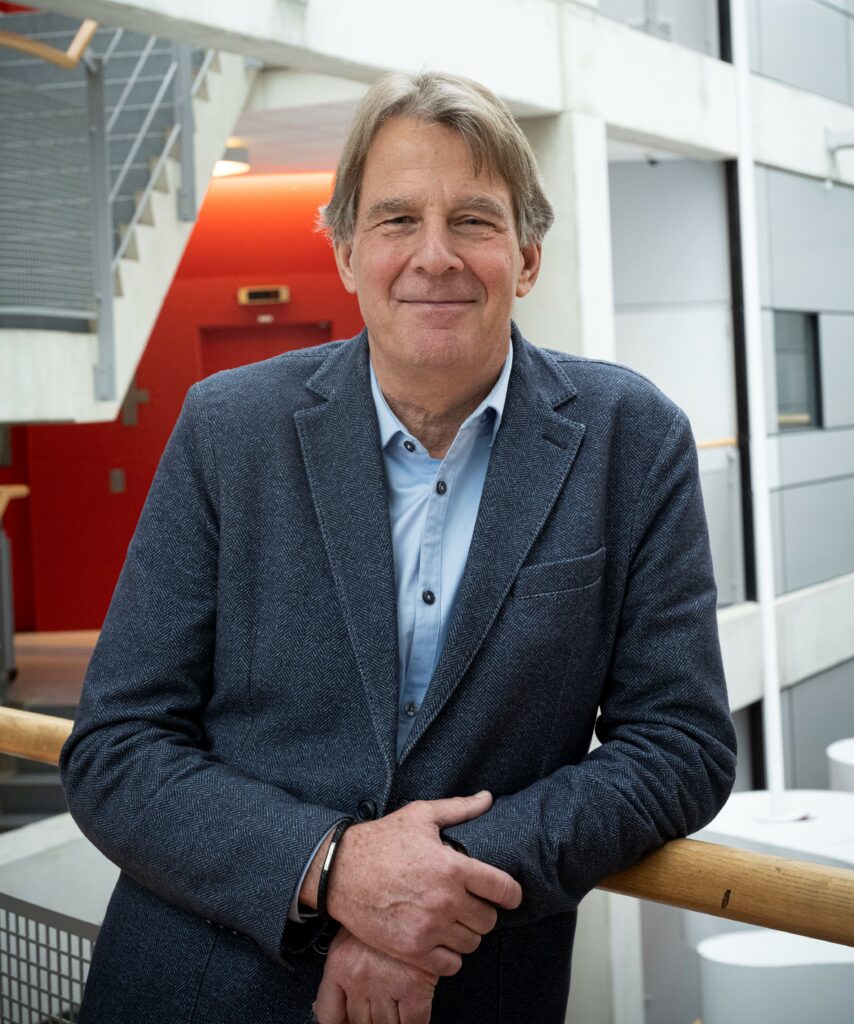Preventive health is high on the agenda, but practice lags behind, according to Niek de Wit, Chairman of the Julius Center (UMC Utrecht). That is why UMC Utrecht is working with TU/e, WUR and UU on innovations in this field in the Institute 4 Preventive Health (i4PH). “We need many different scientists to do this, because we will only reach proven effective prevention solutions by bringing together our knowledge of health care, technologies, lifestyle and behavior,” says De Wit, member of the i4PH steering committee. “So join our research community and learn more about this domain at the EWUU alliance’s annual conference (April 19).” He gives a sneak peek.
Why this collaboration around preventive health?
Experts know better and better which preventive measures are effective. Yet we as a society do not yet succeed in implementing them on a large scale and often remain small projects. Putting prevention into practice is also very complex; there are many factors that determine health, from lifestyle to air quality. We have to turn all the knobs at once.
That‘s why cooperation within the i4PH is so important: TU/e understands technologies, WUR understands nutrition and lifestyle, UU understands behavior and environment, and UMC Utrecht understands health care. Together we come up with scientifically based innovations that governments and companies can use.
What are the biggest challenges in preventive health?
The prevention domain is broad, which makes the challenges diverse. One of the biggest challenges is the increase in health disparities between low and high socioeconomic classes. For example, the life expectancy of residents of the Utrecht neighborhood of Overvecht is about six years lower than that of their fellow townspeople in Tuindorp. We see this throughout the Netherlands.

Another issue is: how do you stimulate a healthier lifestyle and environment? We can keep telling overweight people to lose weight, but a positive approach (a bicycle-friendly environment or stimulating pedaling) or policy choices (no VAT on fruits and vegetables or a sugar tax) may have more effect. Such societal measures are needed to enable healthy behavior.
A third major challenge is: how do we stay healthy for as long as possible? For example, we can do more to keep the elderly healthy and self-sufficient for as long as possible. Think of programs to prevent loneliness, to encourage exercise or for care at home. Each of these are challenges we are working on with i4PH based on our mission: equal opportunities for a healthy life and optimal care, regardless of socioeconomic status.
How does i4PH contribute to this?
Since the founding of i4PH, we have laid a solid foundation for a preventive health research community. We have oriented ourselves well to what is going on in society and defined four research lines based on that: Healthy start, Preserving health, Health@Home and Living with disease. The three challenges mentioned above run like a thread through these.
In Health@Home, for example, we want to develop home monitoring programs for the elderly so that they can stay at home longer or be discharged from the hospital sooner. TU/e then investigates the possibilities of home care technologies, UU looks at their use, WUR at the role of nutrition in the elderly and UMC Utrecht how all this can be applied in healthcare. The total solutions that come out of this we can’t think of without each other.
For each institute, we have also mapped and linked the PIs on the various themes. In addition, we regularly deploy seed money to drive joint research and provide exposure for the honored proposals. One of the projects that received seed money – LIFTS (research on healthy lifestyles for low-literate youth) – has just received a 1.4 million euro grant from NWO-KIC.
What can i4PH do for your colleagues?
I urge all scientists to join our preventive health research community. Prevention is an important pillar of the IZA agreements, and the societal impact of our research is significant. The EWUU alliance offers opportunities to connect your own research with that of others and the annual EWUU conference is a great opportunity to get further acquainted with our work. We hope to see many new faces there!
| ANNUAL CONGRESS EWUU ALLIANCE (APRIL 19, 2023) CROSSING BOUNDARIES FOR A HEALTHY AND SUSTAINABLE FUTURE How can science contribute to a healthy planet? During this congress, the strategic alliance between Eindhoven University of Technology (TU/e), Wageningen University & Research (WUR), Utrecht University (UU) and Utrecht University Medical Center (UMC Utrecht) brings together its expertise on preventive health and a circular society, and challenges younger generations to play a leading role in finding solutions for the future. |